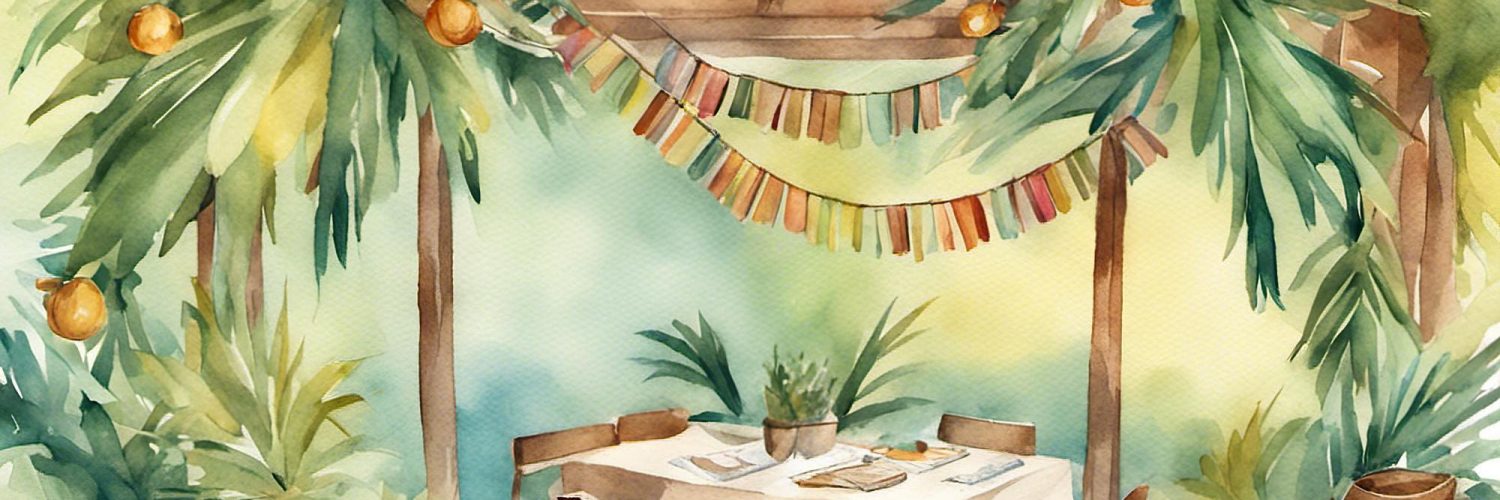Dear Rabbi Sprung,
I am an anesthesiologist, and when I am on-call, I divide my time between the various operating rooms in the hospital and the delivery rooms. As the leader of the on-call team, I direct a group of anesthesiologists and I am responsible for ensuring that every surgery or procedure is staffed appropriately. Am I obligated to eat in a Sukkah during my shifts?
Answer:
You are exempt from eating in the Sukkah if clinical demands are so intense that you would not normally eat in the hospital cafeteria or break room on a regular day. This exemption also applies if the hospital lacks a Sukkah and traveling to one elsewhere would take valuable time away from your duties. (You should also consider that some foods do not require a Sukkah.)
If the demands are not that intense and would allow you to eat comfortably in the cafeteria during the rest of the year, you should eat in the Sukkah if the hospital has one and it would not interfere with patient care.
Full Answer:
The Shulchan Aruch rules (640:3):
Cholim and their attendants are exempt from Sukkah. [This applies] Not [only to] a Choleh sheYesh Bo Sakana but even a person whose head or eyes hurt. There is an opinion that the attendants are only exempt when the Choleh needs them.
The exemption of the attendants is different than that of the Choleh. The Choleh is exempt because of “Teshvu k’Ein Taduru” – sitting in a Sukkah is only required under conditions when a person would sit in his house. Since a Choleh would not remain at home if it were uncomfortable there for him, he is similarly exempt from Sukkah due to discomfort.
However, the exemption of the attendants is based on a different principle. There are two approaches:
The Levush (cited by the Mishna Berura, ibid. 7) holds that the exemption is based on the principle of “haOsek b’Mitzva Patur Min haMitzva – ”One who is occupied with one Mitzva is exempt from another”.
However, the Shevus Ya’akov (3:47) holds that it is due to Halacha of Mitztaer (a person who is distressed by being in the Sukkah):
Regarding a person in the community who was hired as an attendant for the sick, we hold that attendants are exempt from Sukkah. Is he nevertheless obligated to eat a Kezayis in the Sukkah at each meal and make a Bracha on the Sukkah? Given that he leaves [the patients] sometimes for his needs and to relieve himself, would the same [logic] apply to Sukkah or not?
It seems to me that he is completely exempt from Sukkah. Since he is hired to attend to the patient for all of his needs and to care for him and carry out his instructions fully and faithfully, if he goes to eat in the Sukkah he would be Mitztaer from the distress of the patient since he is constantly on his mind. Therefore, he is exempt from Sukkah. However, on the first night when even a Mitztaer must eat a Kezayis in the Sukkah (640), the attendants of Cholim are also obligated.
As the Shevus Ya’akov notes, according to his approach, an attendant is not exempt on the first night of Sukkos. However, according to the Mishna Berura, he would be exempt even on the first night. Nevertheless, even the Mishna Berura would agree that he is obligated to eat in the Sukkah in certain situations:
The Halacha of Osek b’Mitzva dictates that the second Mitzva must be performed if the performance of the first one does not preclude it (see Mishna Berura ibid. 38 and Biur Halacha). In our case, though the anesthesiologist is involved in the Mitzva of Refua, he would generally be able to free up some time to eat in the hospital Sukkah, (just as he would eat his meals in the cafeteria during the rest of the year). Therefore, there is no reason to exempt him. (me’Ikar haDin, snacking or drinking coffee during his shift does not require a Sukkah.) However, if the clinical demands are high and going out to the Sukkah would interfere with his duties, he is exempt from eating in the Sukkah. In that scenario, he cannot perform both Mitzvos simultaneously without interfering with the first Mitzva of Refua.
The Shevus Ya’akov’s questioner assumed that leaving a patient for the attendant’s personal needs could be equated with going out to the Sukkah, but the Shevus Ya’akov did not relate to this contention at all. This is because the exemption is based on the principle of Mitztaer in his opinion, thus it is irrelevant that he would leave the patient for his needs.
There is much to discuss about the Shevus Ya’akov’s classification of an attendant as Mitztaer. It appears that in the case he was discussing, the attendant truly felt the patient’s distress since “he was constantly on his mind.” It seems that the was hired to care for a specific patient with his utmost attention and was required to tend to him constantly.
If so, the Shevus Ya’akov’s case cannot be compared to ours. Though the questioner is in charge of the on-call anesthesiology team and possibly directly treating patients himself, he is not needed by the patients at every moment. It would seem illogical to consider him Mitztaer if he goes to the Sukkah for a few minutes to eat. However, if the shift is unusually busy and at any other time he would eat his meal on the go rather than in the cafeteria, he would be considered Mitztaer and exempt from Sukkah.












Add comment